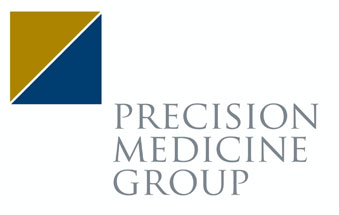Insider Giving: Disguising Insider Trading?
The Wall Street Journal published an article a few weeks ago highlighting a form of surprisingly widespread but undetected insider trading activity: “insider giving”, which consists of timing charitable stock donations around inside information about the stock. This allows the donor to take a tax deduction before bad news sends the share price tumbling or after good news sends the price higher, enabling a bigger deduction than would he or she would have gotten otherwise.
According to new research cited by the WSJ, insider giving is “worryingly widespread” among individuals who hold more than 10% or more of a company’s shares; among the data evaluated, in the year before large shareholders made their gifts, the stocks they donated rose an average of 6% and, the year after donations, those stocks dropped about 4% on average.
Today, laws against insider giving are less clear and developed than laws that restrain insider trading and, as a result, the chances of detection and prosecution are much lower for strategic gifts than for sales. That said, there seems to be growing awareness of the problematic nature of insider giving, with an SEC spokesperson quoted as saying that the SEC is continuing “to pursue enhancements to [its] oversight of insider trading and [is] considering refinement of [its] rules relating to 10b5-1 plans.”
Why are Chinese Biotechs Plummeting?
This week’s BioCentury provided some additional insight into the steep drop in stock prices observed across Chinese biopharmas traded on Chinese exchanges: there is growing concern that biotech could become the next industry to be scrutinized by Beijing, after a recent government directive related to the education sector decreed that academic tutoring companies can no longer be publicly traded, leaving investors in those companies with dramatic and overnight losses. This initiative followed other worrisome moves, including one to take a Chinese ride hailing giant private only weeks after its IPO and various threatened limits on Alibaba’s mobile payment company Ant. It appears among other things that the Chinese government wants to limit the scale and influence of tech companies and, particularly, their power over data private and potential impact on national security as well as to exert state influence over industries with public interests.
The investors BioCentury spoke to are not all that concerned, however: not only has scrutiny on the healthcare sector always been there, but the Chinese government is trying to catalyze and grow biotech innovation, not tamp it down. Together, they argue, this suggests that the weakness in the markets may present a buying opportunity, not the harbinger of a bear market.
SEC to Tighten Disclosure Rules for China-Based Firms
The SEC is strengthening disclosure requirements for Chinese issuers with a wide range of new directives predominantly affecting Chinese companies seeking to register directly in the U.S. and Chinese companies using variable interest entities. This directive came shortly after the crackdowns on the larger Chinese technology companies mentioned above. The mandates aim to protect investors in U.S. capital markets against any future actions taken by the Chinese government that could significantly affect an operating company’s financial performance and the enforceability of contractual agreements.
House Financial Services Committee (Finally) Votes to Shorten the 13F Filing Window
On July 29th, the U.S. House Financial Services Committee voted to advance a new bill that would shorten the 13F filing window and require short-seller disclosures. Bill HR 4618, or the Short Sale Transparency and Market Fairness Act – would require asset managers responsible for more than $100M in assets under management to file ownership reports with the SEC no later than 10 days after the end of each month (vs. 45 days after the end of each quarter, as we have today). In addition, it would require asset managers to include direct or indirect derivative positions or interest in their 13F filings and would mandate short-seller disclosure within 180 days of passing. Finally, it would ask the SEC to conduct a review of the terms under which asset managers can apply to file their 13Fs confidentially.
The bill passed on a party-line vote, with 27 votes in favor and 22 votes against; it will now be scheduled for debate in the full chamber of the House and, if passed, referred to the Senate.
Lumira Ventures Closes $220M Life Sciences Fund
Lumira Ventures closed its largest fund last week with $220M to deploy into life sciences companies in underserved geographies in the United States and Canada. Lumira’s latest fund is focused on investments in life sciences companies located outside of the typical hubs such as Boston and San Francisco under the assumption that these underserved geographies tend to have more capital efficiency and more favorable valuations, without compromising quality of innovation or management talent. This new fund, Lumira Ventures IV, will focus on 15 to 20 new portfolio companies and will invest at the company creation stage all the way through growth equity, private transactions and PIPE investments.
Market Update:
The overall markets were stable this week. The NASDAQ closed up 1%, and the DJI and S&P 500 closed flat. The VIX declined 2% this week, sitting at 17.3 as of market close on 8/5. Biotech markets had a very strong week, with the NBI, XBI and BTK increasing by 5%, 3% and 4%, respectively.
Continuing the trend of the past few weeks, biotech public capital markets have been active, with a handful of IPOs and follow-ons, including the following deals:
- IPOs: Absci ($230M), Candel ($72M), Cytek ($200M), Icosavax ($209.3), Immuneering ($129.4M), In8Bio ($40M), MaxCyte ($201.8M), Nuvalent ($190.6M), Omega ($125.8M), Rani ($73.3M), SIR Client Rally Bio ($92.7M), RxSight ($132M), Sophia Genetics ($234M), Tenaya ($207M)
- Follow-ons: Avidity Biosciences ($144M), LivaNova ($280.1M)
In addition, there were numerous private financings, including:
- Aardvark (Series B, $29M), Aristea (Series B, $63M); Artios (Series C, $153M); Deep Genomics (Series C, $180M); Engrail (Series A, $64M); InterVenn (Series C, $201M); Rakuten Medical (Series D, $166M) Ring Therapeutics (Series B, $117M); Solynta (Series C, €21M); Sonoma (Series B, $265M); Strata Oncology (Series C, $90M); T-Knife (Series B, $110M); Topas (Series B, €40M), Zentera (Series B, $75M)

